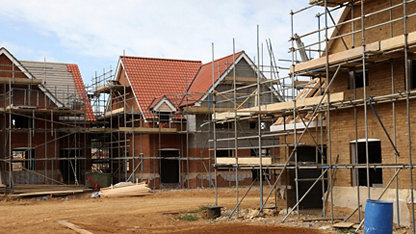We are urgently investigating an issue currently affecting Event Bookings.
RICS has responded to the Welsh Parliament’s Local Government and Housing Committee inquiry into the challenges and opportunities facing the 17% of the population that currently calls the private rental sector home.
The scope of our response explored the recent challenges facing landlords and tenants, from cost-of-living pressures to the introduction of new regulations and the broader access to new housing and supply.
Member insight identified opportunities for improvements in the way Rent Smart Wales works with landlords to communicate regulatory changes, as well as increasing recognition of professional body training and resource - which will reduce administrative burdens while upholding standards for tenants.
Recommendations to the Committee
- The Welsh Government must urgently work with the sector to undertake a holistic review of the challenges in meeting its 20,000 affordable homes target which will soften pressure on the PRS, and wider house stock strategy.
- Explore options for a temporary reduction in the Land Transaction Tax higher residential tax rate to encourage the creation of more PRS homes – which would coincide with recent market surveys showing a small decline in owner-occupier buyer demand.
- Rent Smart Wales should encourage the use and benefits of professional body membership by landlords by recognising the role of CPD offered by bodies including RICS and NRLA in its licence training requirements.
- Following the deadline for contract conversions, the government and Rent Smart Wales should undertake an analysis to evaluate its effectiveness in supporting tenants in knowing their rights and obligations. The government should also work with professional bodies who have previously produced shorter, and more ‘user-friendly’ contracts which would benefit both landlords and tenants.
- New regulations and standards must have a realistic compliance date. Current proposals in England to deliver the Decent Homes Standard to the PRS in 18 months are already of concern to landlords who will struggle to find the supply chain and labour to undertake the improvements within the timeframe. If similar proposals were considered for Wales, there are concerns this could further drive landlords out of the market due to risks of missing the deadline.
- While reforms to the court system are proposed to support the issuing of notice periods and evictions, the Welsh Government should work with the UK Government to review, alongside the industry, the effectiveness of these changes.
- Develop the Welsh Housing Survey to collect more frequent and detailed feedback on housing conditions and behaviour, building on the previous Welsh Housing Condition Survey and the English Housing Survey.
- Call on the UK Government to confirm new MEES regulation compliance dates in legislation urgently and explore options within the devolved settlement to set their Welsh-specific targets. The Welsh Government should use any new energy standards as a catalyst to encourage social and PRS landlords to work together through the Optimised Retrofit Programme to assist with improvements.
Published date: 16 June 2023

:heading-h1-TandE-L?$dpp-heading-h1-small-xxl$&qlt=85,1)











